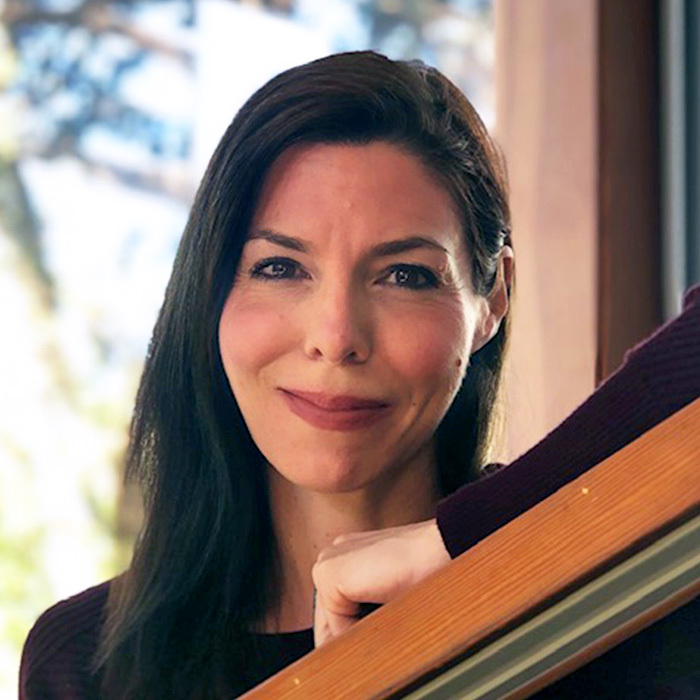What is DEI Training?
As a Senior Consultant at Paradigm, I get a lot of inquiries about my work with organizations and how we help them with their DEI, especially with their DEI training. This conversation is typical.
Curious Inquirer: We know that we need help with our DEI, but we have no sense of what form that help comes in and how to ask for it. Can you tell me how you help organizations with DEI?
Paradigmer: Sure, I’ll break it down. We help organizations by changing their culture through a two-pronged approach. On the one hand, we help them change systems—like hiring processes, evaluation processes, demographic data collection, just to name a few, to make their organizations more diverse, equitable and inclusive. We think of this as our strategy work. And then on the other hand, we help to equip people—individuals—with the education they need to be agents of change themselves. This is our people development and training work.
People Development and Training
Curious Inquirer: Yes, training—that’s what I think we need. How do you deliver this training to individuals?
Paradigmer: In our experience, people in different organizations need different things. Some organizations want to offer education to their people on their own time and at their own pace. Others want that education to be more interactive, led by a facilitator, and targeted to specific audiences within the organization. We offer both types of training. Our online Reach platform delivers ongoing, self-paced education around DEI topics, and we also have both in-person and virtual facilitated interactive DEI trainings or workshops. Many clients opt for a blended combination of online and facilitated trainings.
Curious Inquirer: Are those one-size-fits-all trainings?
Paradigmer: No, they come in different formats and are customized to cover specific topics for specific audiences. These essentially are workshops, where we share research on various DEI topics, engage participants on how they personally experience these topics, and provide actual strategies they can use in their roles to promote DEI best practices and strong cultures. We believe that DEI training isn’t sticky if it isn’t interactive, so we make sure it is, whether the session is virtual or in-person, and whether we’re working with a group of executives, or recruiters, or independent contributors.
Curious Inquirer: But surely training for the C-Suite is different from training for new hires?
Paradigmer: Yes and no. Some of the specific topics, strategies, dynamics, and talking points change audience by audience, but the principles of DEI don’t change, nor does our goal to engage whatever audience we’re working with. DEI training can’t be passive and be effective.
DEI Training Topics
Curious Inquirer: We definitely want everyone in our organization to be more DEI-minded, but we also have very specific pain points. What are the topics you cover in DEI trainings?
Paradigmer: We cover a lot. We facilitate more foundational sessions like Managing Unconscious Bias and Inclusive Culture, and build on those with sessions specifically about Allyship and Anti-racism at work. With the gathering of data on virtual work during the Pandemic, we’ve been able to offer sessions on Remote and Hybrid Inclusion that help our clients maintain inclusive cultures even as their people are in different places. We facilitate more targeted sessions to create inclusive cultures, like Amplifying Voice, Belonging, and Growth Mindset. For ERG leaders, we have sessions on best practices and how to be DEI Champions — advocates for others at work. For people who hire, there’s Inclusive Hiring workshops. For people managers who formally evaluate people, we have Inclusive Performance Evaluation workshops. Regardless of the session topic, we tailor the content to be most meaningful to the group in front of us. Sometimes an organization wants more of a discussion-based session, or an applied experience, where participants work through hypothetical scenarios. And because organizations are made up of people with a range of different experiences and perspectives, I’ve never facilitated the same session twice.
Curious Inquirer: I’m sure you cover all the bases, but what if I’m still not sure exactly what we need?
Paradigmer: A lot of our clients aren’t sure—and that’s why we’re here! We’re your partners in this and can help you figure out a game plan. We know what to ask to figure out your needs and point you in the right direction. We’re happy to have a conversation.
December 2, 2022

 Our website uses cookies to distinguish you from other users of our website. This helps us to provide you with a good experience when you browse our website and also allows us to
improve our site. By continuing to browse our website, you’re agreeing to our use of cookies. For more information, please read our
Our website uses cookies to distinguish you from other users of our website. This helps us to provide you with a good experience when you browse our website and also allows us to
improve our site. By continuing to browse our website, you’re agreeing to our use of cookies. For more information, please read our
